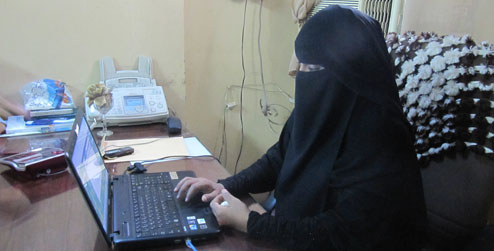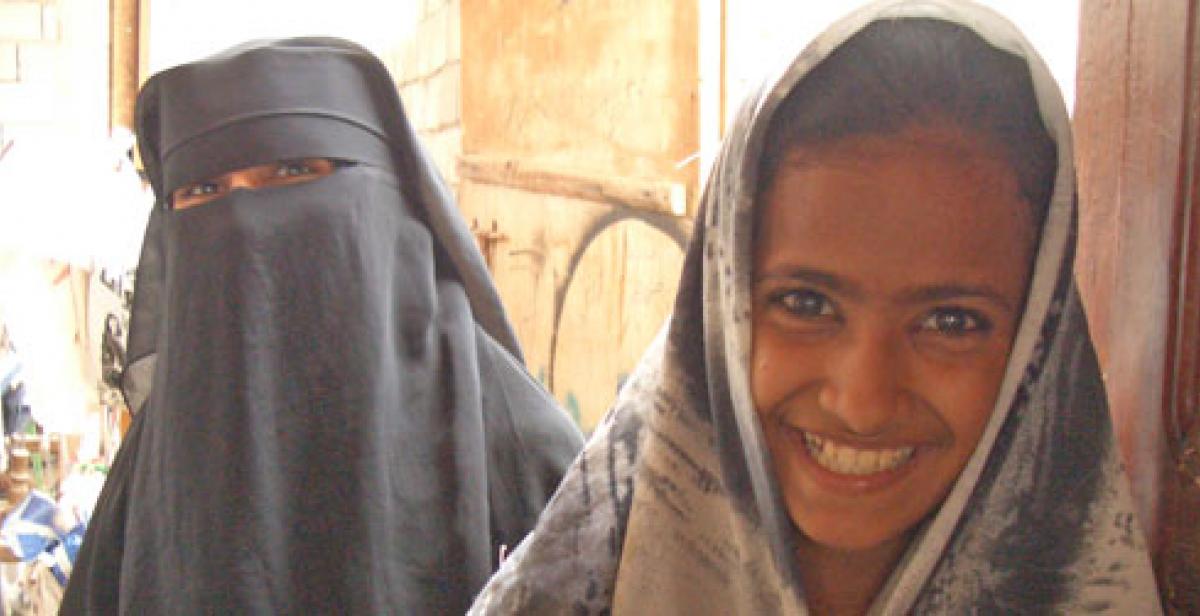Women remain among the most marginalised groups in Yemeni society. Despite the enshrinement of the rights of women in Islam, the Yemeni legal system and international conventions, many women in Yemen have yet to realise their full humanity, rights and citizenship.
Ms Hanan Omar, head of the Half of Society, a women’s-based NGO in Hodeida, Yemen, notes that part of the problem lies with the mentality of the women. She says: “Most Yemeni women are convinced to stay at home carrying out the reproductive role and do not have the desire or opportunity to improve their economic status. They are not willing to work outside the home.”
Another problem is how society views and discriminates against women: “Women who choose work outside the home have inferior jobs... Women also suffer from discrimination in which males are given priority in the family and in society.”
She adds that: “Yemeni women lack basic health services during pregnancy, delivery and postpartum care because the patient is a woman. That is also partly due to family ignorance as well.”
In response to the discrimination against women, Progressio has launched the ‘Combating discrimination against women in Hodeida’ project with generous support from the Embassy of the UK in Sana’a. The project will advocate for women’s rights among broad sectors of society targeting some 25,000 women in two districts over nine months.
The project is unique in that it aims to build women’s capacity, both women from communities and our NGO partners, in advocacy. The project is also unique in that it is being jointly implemented by the Hodeida NGO forum with the Half of Society NGO taking the lead role.
The project aims to respond to the issues highlighted by Hanan Omar (pictured below in her office): “We need to change the negative attitudes towards women that they are not only wives, mothers or sister, but also partners in the development process.”

She adds: “Islamic Sharia ensured all civil rights for women but customs and traditions prevented enjoyment of those rights. So we need to enforce existing laws and legislation guaranteeing both men and women rights together, as opposed to the prevailing situation, and this includes addressing women’s rights with regard to inheritance and rights in polygamous marriages.”
She says she speaks from personal experience: “I personally have suffered from this issue (of polygamy) and after a long and troubled marriage decided to separate. My point of view on polygamy is that we need to raise awareness and conduct a careful study to put in consideration female and male awareness about its principles and restrictions to ensure the rights of both parties. The absence of laws that protect women contributes to the further violation of their rights.”
The poor status of women is apparent in that many still do not have basic ID cards or voter cards which are needed for participation in society.
However, addressing the topic of women in Yemen is a sensitive and complicated issue and requires the leadership of understanding people like Hanan Omar. As she puts it: “The challenge we may face is that some project’s objectives may contradict some laws that are clear and explicit in the Qur’an and Sunnah. They should be avoided as it has a religious and cultural sensitivity which may lead to the failure of the project.”

Every days, people do extraordinary things. They share their skills with their community, they overcome poverty and injustice. Hanan Omar is one of them, a living legend.
You can be a living legend too. After taking care of loved ones, would you consider leaving a gift to charity in your will so that people like Hanan can continue advocating for women’s rights in Yemen? Find out more.
Interview by Progressio development worker Derek Kim.
Photo: Young women in Yemen (photo © Zara Benosa/Progressio)



